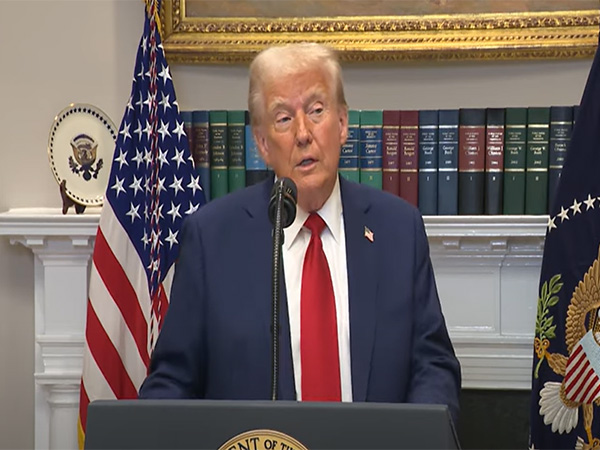America's Future in President Trump's Vision
Jan 23, 2025
Washington [US], January 23: Just 1 day after his inauguration, US President Donald Trump immediately issued many new policies.
On the afternoon of December 21 (US time), representatives of the world's three leading technology corporations , OpenAI CEO Sam Altman, SoftBank CEO Masayoshi Son and Oracle Chairman Larry Ellison, appeared with President Trump at the White House.
Domestic controversy
At the event, business leaders announced the formation of a new company called Stargate to develop artificial intelligence (AI) infrastructure in the US. This plan was emphasized by Mr. Trump as "the largest AI infrastructure project in history". Accordingly, the initial investment is 100 billion USD and the total capital investment plan will be up to 500 billion USD to help the US maintain its number 1 position in the world in the field of AI.
In addition, President Trump also signed to cancel the executive orders regulating AI - which were issued by his predecessor, Mr. Joe Biden, in October 2023. That means AI companies will not need to implement certain safety and transparency measures related to the development of technology serving AI. This is a move that has caused many concerns surrounding many warnings about the risks that can occur if the AI development process is not controlled.
Not only that, on his first day in office, President Trump signed decisions and reinforced his intention to increase fossil fuel exploitation. This means reversing the US's progress in responding to climate change and moving towards clean energy. Mr. Trump also withdrew the US from the Paris climate agreement. Explaining this decision, Mr. Trump said that high energy prices are a factor leading to increased living costs, so increasing fossil fuel exploitation will help fight inflation.
In this regard, Doug Burgum, former governor of North Dakota and a candidate for Secretary of the Interior and head of the National Energy Council in the Trump administration, argues that if the US does not make the most of fossil fuels, it will lose the AI "arms race" with China. According to Burgum, to run AI models on advanced processors, data centers require a large amount of electricity, but wind and solar energy are unstable. However, the intention to promote fossil fuels has drawn criticism for its commitment to reducing greenhouse gas emissions.
In addition, yesterday (January 22), up to 22 Democratic-led states and civil rights groups filed a series of lawsuits against President Trump to restore birthright citizenship . Regarding this issue, Mr. Trump previously ordered the refusal to recognize the citizenship of children born in the US if both parents are not citizens or legal permanent residents of the US. The states that filed the lawsuit argued that President Trump cannot unilaterally rewrite the 14th Amendment of the Constitution on birthright citizenship for all babies born in the US.
Not only birthright citizenship, Mr. Trump also implemented a series of measures to tighten immigration issues, even declaring a state of emergency for the flow of immigrants at the US-Mexico border.
President Trump is also facing other criticism related to decisions on gender recognition and many other domestic policies.
Question mark on foreign affairs
On foreign affairs, federal agencies have been ordered to investigate unfair trade practices and deficits; and to evaluate compliance with trade agreements. Mr. Trump said that the imposition of a 25% tariff on imported goods from Canada and Mexico could begin as early as February 1. If this happens, not only will it be a problem for neighborly relations but also risks a trade war breaking out between North American countries.
In addition, President Trump also announced that he would increase tariffs on European Union (EU) goods and said that his administration is discussing adding a 10% tariff on Chinese imports. The increase in tariffs on Chinese goods could also start from February 1.
Along with the threat of raising tariffs on Beijing, Washington also expressed its commitment to strengthening cooperation with the "Quad" group (US - Japan - Australia - India). On January 21 - just one day after Mr. Trump took office, new US Secretary of State Marco Rubio held a four-way meeting with the remaining three counterparts in the "Quad" group at the White House . In a joint statement after the meeting, the foreign ministers said that officials from the four countries will meet regularly to prepare for the "Quad" summit taking place this year in India. The statement also shared concerns about China's growing power.
However, President Trump has repeatedly said that US partners and allies in Asia need to contribute more to cooperation activities with Washington. In addition, Washington also has some disagreements on trade with some parties in the region. This raises questions about the ultimate effectiveness as well as the actual coordination with the "Quad" members as well as some other partners and allies.
Source: Thanh Nien Newspaper








